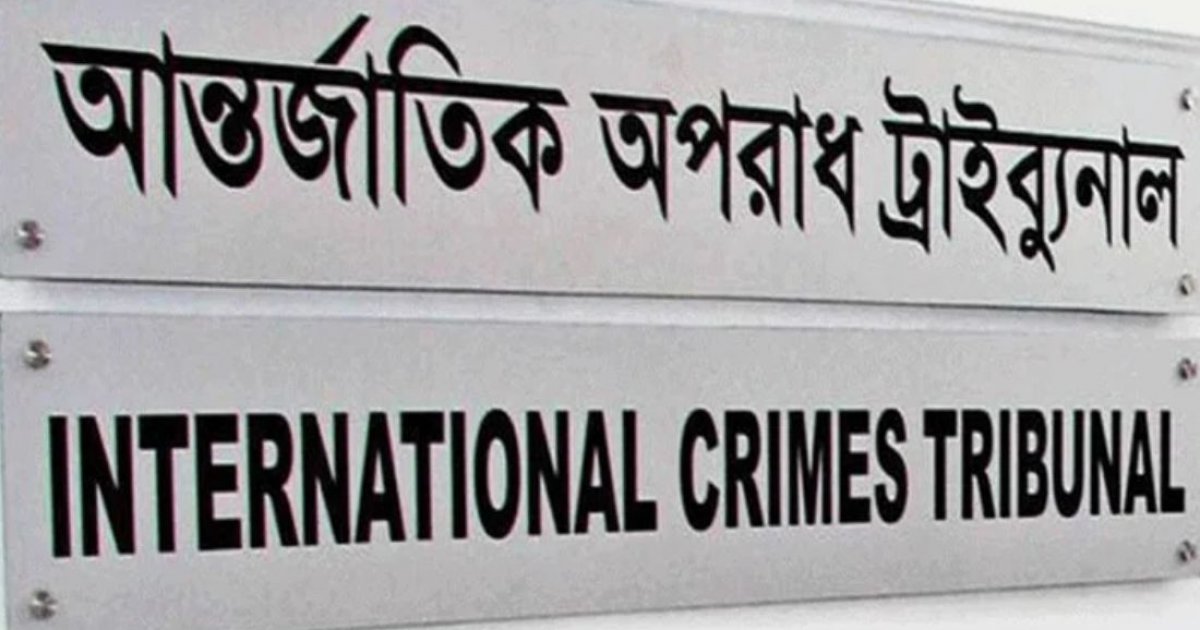Numerous allegations have surfaced during the prolonged rule of the Awami League, accusing the Rapid Action Battalion’s Taskforce Interrogation (TFI) and the Joint Interrogation Centre (JIC) of abducting and torturing individuals holding dissenting political views.
On October 8, the International Crimes Tribunal officially took cognizance of two cases filed over crimes against humanity.
Former prime minister Sheikh Hasina and 29 others have been named as accused in these cases, including around 25 current and former army officers.
The army has confirmed that 15 of them are in its custody.
A day after the army announced that it had taken 15 officers—who are under arrest warrants from the Tribunal—into custody, the Ministry of Home Affairs declared a building inside the Dhaka Cantonment as a temporary prison.
The move has sparked widespread debate and raised questions about legality and accountability.
Human rights organizations have expressed concern over the decision to keep the officers in a special prison within the cantonment.
Confusion has also arisen regarding whether the officers are considered “arrested” or merely “detained.”
When asked about the legal status of the 15 officers, the chief prosecutor said: “As we have not been officially informed that they are under detention, we are not taking media reports into account. If it is formally stated that they have been detained, they must be produced before the court within 24 hours—that is the law. Since we have not been informed, I prefer not to comment on the matter.”
On Sunday, Major General Md Hakimuzzaman, Adjutant General of the Bangladesh Army, told a press briefing that the accused active-duty officers had been placed in a secure location and separated from their families.
He added that appropriate legal measures would be taken against them under the law, while retired officers would face legal action by the police.
However, Supreme Court senior lawyer and Acting President of Gono Forum Subrata Chowdhury said: “The detainees must be handed over to the police or presented before the court. In the past, special cases—such as those involving Hussain Muhammad Ershad, Begum Khaleda Zia, and Sheikh Hasina—saw sub-jails declared through gazettes. That may be done for security reasons, but the army itself cannot do so. They must be handed over within 24 hours and presented before the judiciary.”
He added: “The army officers must be produced before the court through the police. Since that has not yet been done, a legal irregularity is taking place.”
Transparency International Bangladesh (TIB) has also raised concerns, calling the decision to keep the accused army officers in military custody a violation of the constitutional commitment to equality before the law.
In a statement issued on Tuesday, TIB described the decision as “discriminatory” and urged the government to revoke it.
The organization also sought an explanation from the government on the rationale for treating the accused army officers differently from other defendants.
TIB Executive Director Iftekharuzzaman said: “In cases involving crimes against humanity, professional background or rank cannot be a factor in the judicial process. Granting special privileges or differential treatment contradicts the principles of justice.”
He further questioned the justification for housing the accused officers in a specialized sub-jail, saying: “If other accused individuals can remain in the custody of civilian authorities, the creation of a separate arrangement for military officers raises doubts. Such discriminatory actions may undermine public trust in the Tribunal’s process and create confusion regarding the government’s intentions.”
However, Supreme Court lawyer Barrister M Sarwar Hossain argued that the issue was being misunderstood.
He said: “I believe there is some misunderstanding. The army, under its legal framework, can attach any officer or employee to a designated location. That does not constitute arrest. It is lawful under the Army Act of 1952 and other applicable civil laws. Therefore, keeping them under military custody is a commendable step that reflects compliance with legal procedure before any arrest.”
The former army officer and lawyer added: “No one should be called guilty until proven so. They could have been tried under the Army Act through court-martial proceedings, where many have previously been convicted. This does not indicate any special privilege.”
He further said: “Instead of criticism, this action by the army deserves appreciation. In Bangladesh, the army faces more criticism than in any other country. Individual wrongdoing should be condemned, but criticizing the entire institution is unjust.”
Barrister Hossain also said: “The Tribunal was formed to try war criminals. Although it has conducted investigations, it should have forwarded its findings to the army for internal legal action. By making public comments, the Tribunal risks contradicting Article 27 of the Constitution, which guarantees equality before the law. Trying army officers under the Tribunal’s jurisdiction could itself be viewed as conflicting with the Constitution.”
Human rights activist and Supreme Court senior advocate Manzil Morshed said: “Based on available information, the Tribunal issued arrest warrants for several army officers, while the army stated that it had not yet received the warrants but had taken the named officers into custody.”
He further added: “Subsequently, the government declared a building in the cantonment as a sub-jail, which is legally permissible. Sheikh Hasina was once similarly detained in a sub-jail. The officers are expected to appear before the Tribunal on the scheduled date. We must wait to see whether that happens. So far, the army has not said anything that suggests a conflict, but the situation remains delicate.”



